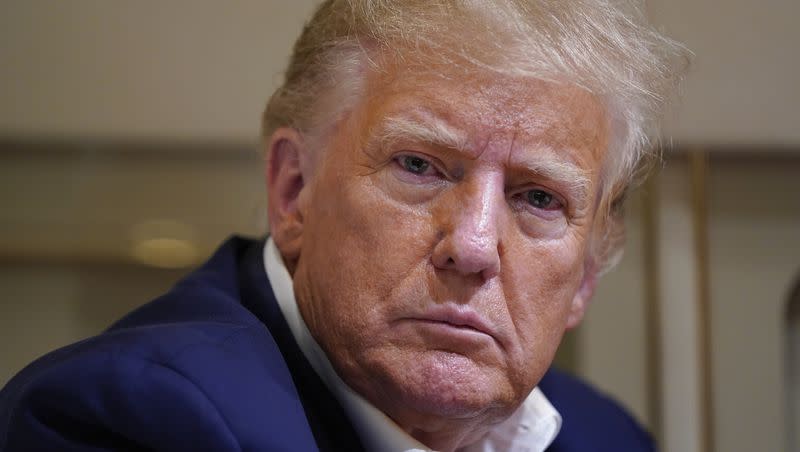Judge rules Trump committed fraud while building his real estate empire

- Oops!Something went wrong.Please try again later.
New York Supreme Court Justice Arthur Engoron ruled Tuesday that former President Donald Trump committed fraud for years while building his real estate empire.
The judge found that Trump along with executives, including his sons, Eric and Donald Jr., and his company misled banks, insurers and others by inflating the value of his assets and exaggerating his net worth on papers used to make deals and secure financing.
Engoron ordered the revocation of the former president’s business licenses, hindering his ability to do business in New York. An independent monitor will continue overseeing the Trump Organization’s operations, per AP News.
“Beyond mere bragging about his riches, Trump, his company and key executives repeatedly lied about them on his annual financial statements, reaping rewards such as favorable loan terms and lower insurance costs, Engoron found,” per AP News.
Christopher M. Kise, a lawyer representing Trump, called the decision “outrageous” and told The New York Times the former president will likely appeal, saying the judge ignored “basic legal, accounting and business principles.”
The judge rejected Trump’s argument that there was no wrongdoing because of a disclaimer on the financial statement, saying those tactics violated the law.
Related
“In defendants’ world: rent regulated apartments are worth the same as unregulated apartments; restricted land is worth the same as unrestricted land; restrictions can evaporate into thin air; a disclaimer by one party casting responsibility on another party exonerates the other party’s lies,” Engoron wrote in his 35-page ruling, per AP News. “That is a fantasy world, not the real world.”
Trump’s defense team had requested that Engoron dismiss the case, arguing New York’s attorney general, Letitia James, had no authority to file such a lawsuit because there was no evidence showing the public had been harmed by Trump’s actions, and many of the allegations were “beyond the statute of limitations,” per The Guardian.
Some of the assets that had their values inflated include: Trump’s Mar-a-Lago estate in Florida, a penthouse apartment in Manhattan’s Trump Tower that belongs to the former president, office buildings and golf courses, per The Guardian.
Related
While Tuesday’s ruling resolves part of the lawsuit, remaining claims, including James’ request for $250 million in penalties, will be decided during a nonjury trial scheduled to start Oct. 2. Trump’s defense is seeking a delay.

